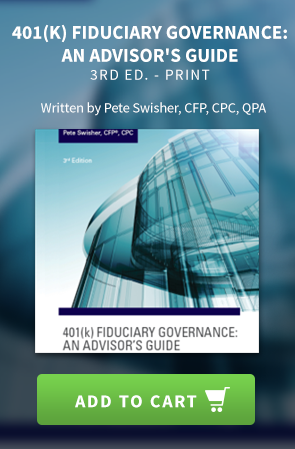Advanced Plan Design for Public Schools
In MarketBeat, Ted Godbout writes about a research paper whose authors suggest that policies that promote retirement saving, such as auto-enrollment, may unintentionally lead to an increase in abandoned retirement savings accounts.
READ MORE
Pension plans — such as traditional plans serving teachers — are facing multiple challenges. Former NTSA President Kent Schutte, speaking at a Jan. 27 session of the 30th Anniversary NTSA Summit, offered a solution: auto-enrollment and employer matching contributions to 403(b) plans.
Schutte...
READ MORE
Suppose that a school district plans to use a contract that would give the superintendent a choice of medical insurance OR an employer contribution to the 403(b) plan. In Tech Talk, Ellie Lowder tells us what the consequences would be if the district proceeds with this idea.
READ MORE
Charter schools are the fastest-growing school choice option in the U.S public education system. In MarketBeat, Richard H. Ford offers a discussion of their origin and growth, and how retirement plans are handled for their employees.
READ MORE
The public university retirement plan market can test one’s knowledge and experience. In MarketBeat, Michael Webb discusses five basic features of public university plans for those who may be unfamiliar with this important segment of the nonprofit retirement plan marketplace.
READ MORE
We may be getting a better understanding of when an employer-sponsored plan is considered to be a governmental plan if the employer is a charter school, based on Notice 2015-07. In this week’s MarketBeat, Linda Segal Blinn explains what this guidance means and the impact it could have.
READ MORE
Some governmental plan sponsors, public school districts and public higher education organizations misinterpret how the federal income tax code applies to them. In this week’s MarketBeat, Michael Webb provides an overview regarding the sections of the tax code that do — and do not — apply to them.
READ MORE
Suppose an employer provides 100% vesting in its 403(b) plan. There is a 60-day wait for the employer match (100%, up to 4%), and an employee needs to work 20 hours per week to qualify for the match. The employer has no highly compensated employees. What type of plan setup could the employer...
READ MORE
Forty-two states and the District of Columbia allow charter schools. They tend to treat their benefits packages in the same way as a typical for-profit employer and not in the way a traditional K-12 school does. In MarketBeat, Diane D. Capone of Lincoln Investment writes that it is important to...
READ MORE


